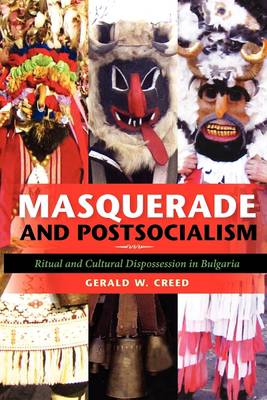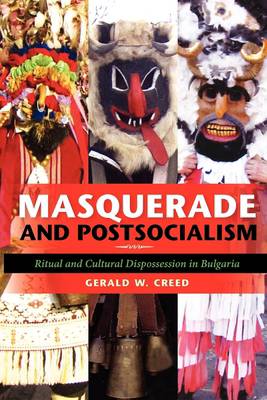
- Retrait gratuit dans votre magasin Club
- 7.000.000 titres dans notre catalogue
- Payer en toute sécurité
- Toujours un magasin près de chez vous
- Retrait gratuit dans votre magasin Club
- 7.000.0000 titres dans notre catalogue
- Payer en toute sécurité
- Toujours un magasin près de chez vous
Description
Gerald W. Creed analyzes contemporary mumming rituals in rural Bulgaria for what they reveal about life after socialism--and the current state of postsocialist studies. Mumming rituals have flourished in the post-Soviet era. Elaborately costumed dancers go from house to house demanding sustenance and bestowing blessings. Through the analysis of these rites, Creed critiques key themes in postsocialist studies, including understandings of civil society and democracy, gender and sexuality, autonomy and community, and ethnicity and nationalism. He argues that these events reveal indigenous cultural resources that could have been used both practically and intellectually to ease the postsocialist reconstruction of Bulgarian society, but were not.
Spécifications
Parties prenantes
- Auteur(s) :
- Editeur:
Contenu
- Nombre de pages :
- 272
- Langue:
- Anglais
- Collection :
Caractéristiques
- EAN:
- 9780253222619
- Date de parution :
- 24-01-11
- Format:
- Livre broché
- Format numérique:
- Trade paperback (VS)
- Dimensions :
- 155 mm x 231 mm
- Poids :
- 417 g

Les avis
Nous publions uniquement les avis qui respectent les conditions requises. Consultez nos conditions pour les avis.






